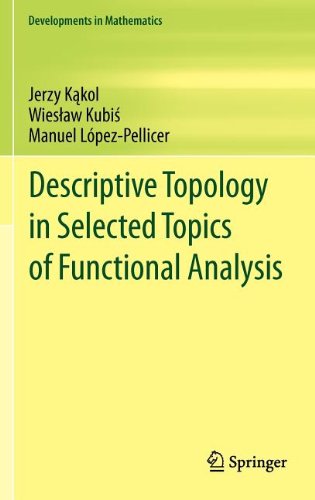

Most ebook files are in PDF format, so you can easily read them using various software such as Foxit Reader or directly on the Google Chrome browser.
Some ebook files are released by publishers in other formats such as .awz, .mobi, .epub, .fb2, etc. You may need to install specific software to read these formats on mobile/PC, such as Calibre.
Please read the tutorial at this link: https://ebookbell.com/faq
We offer FREE conversion to the popular formats you request; however, this may take some time. Therefore, right after payment, please email us, and we will try to provide the service as quickly as possible.
For some exceptional file formats or broken links (if any), please refrain from opening any disputes. Instead, email us first, and we will try to assist within a maximum of 6 hours.
EbookBell Team

4.0
96 reviewsA large mathematical community throughout the world actively works in functional analysis and uses profound techniques from topology. As the first monograph to approach the topic of topological vector spaces from the perspective of descriptive topology, this work provides also new insights into the connections between the topological properties of linear function spaces and their role in functional analysis.
Descriptive Topology in Selected Topics of Functional Analysis is a self-contained volume that applies recent developments and classical results in descriptive topology to study the classes of infinite-dimensional topological vector spaces that appear in functional analysis. Such spaces include Fréchet spaces, LF-spaces and their duals, and the space of continuous real-valued functions C(X) on a completely regular Hausdorff space X, to name a few. These vector spaces appear in distribution theory, differential equations, complex analysis, and various other areas of functional analysis.
Written by three experts in the field, this book is a treasure trove for researchers and graduate students studying the interplay among the areas of point-set and descriptive topology, modern analysis, set theory, topological vector spaces and Banach spaces, and continuous function spaces. Moreover, it will serve as a reference for present and future work done in this area and could serve as a valuable supplement to advanced graduate courses in functional analysis, set-theoretic topology, or the theory of function spaces.